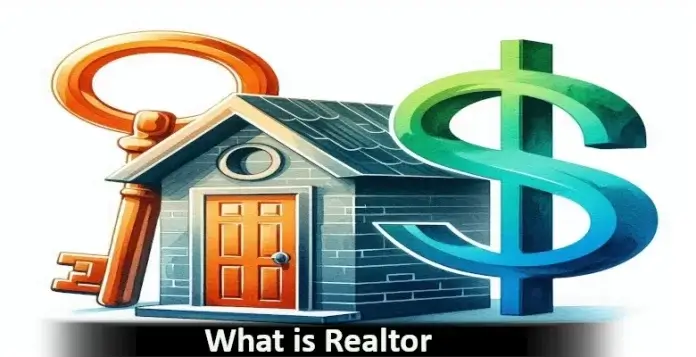Let’s clear something up because this one confuses a lot of people. What is Realtor?
And wait, is that the same thing as Realtor.com? Or are those two different things?
The short answer: They’re different. But the mix-up makes sense. The words sound almost identical.
A Realtor is a person. Someone licensed to help you buy or sell property. But not just any agent, they’re part of the National Association of Realtors. That membership comes with extra rules. Stuff like ethics guidelines and professional standards that regular agents might not have to follow.
Realtor.com, on the other hand, is a website. It’s where you go when you’re casually house shopping on your phone while waiting for your coffee. It’s not a person. It doesn’t sell you a house. It just shows you listings and sometimes connects you with agents.
Still, people get them mixed up all the time. So if you’re wondering what a Realtor is, how they work, and what Realtor.com has to do with it, this guide will explain it.
No complicated jargon. Just the real answers.
What Is Realtor?
The word gets thrown around a lot, but what does it mean? Let’s unpack it.
Realtor vs Real Estate Agent: Not the Same Thing
Here’s the part most people get wrong. A Realtor is always a licensed real estate agent or broker. But not every agent is a Realtor. Think of it like this: All rectangles are squares, but not all squares are rectangles. (Okay, that’s not exactly right, but you get the idea.)
A real estate agent has a license to help you buy, sell, or rent property. A Realtor has that same license but has also joined the National Association of Realtors (NAR).
What’s NAR?

It’s basically the biggest trade organization in the real estate world. Millions of members across the globe. When an agent joins NAR, they get to use the word Realtor, with the capital R, and agree to follow NAR’s Code of Ethics. That’s supposed to mean they’ll do business fairly and honestly.
So technically, “Realtor” is a title that comes with extra responsibilities. But in everyday conversation? People mix the terms up all the time.
What Do Realtors Do?
Pretty much the same things regular agents do, just with that ethical commitment added in. They help people:
- Buy homes
- Sell homes
- Negotiate deals
- Handle all the paperwork that makes your head spin
So Why Work With a Realtor?
Because ideally, you’re getting someone who’s playing by a stricter rulebook. Of course, there are great real estate agents who aren’t Realtors. And, let’s be real, there are probably some Realtors who don’t always live up to the code. But the idea is that when you hire a Realtor, you’re getting someone who’s agreed to higher standards.
It’s like choosing a board-certified doctor. You don’t have to, but it might give you some peace of mind.
What Is Realtor.com?
Alright, so now let’s get into Realtor.com. This is where a lot of the confusion starts.
Is Realtor.com the Same as a Realtor?
Nope. Not even close. It’s easy to mix them up, though. The names are nearly identical, and if you’re not in the real estate world every day, they sound like they belong together. But they don’t.
Realtor.com is a website. It’s a giant online real estate platform where people go to browse homes, check property values, or just daydream about moving to the beach.
The site is owned by a company called Move, Inc., which is part of News Corp. They have permission to use the word Realtor because of a licensing agreement with the National Association of Realtors. But the site isn’t run by Realtors, and the people behind the platform aren’t the ones showing you homes or helping you negotiate offers.
What Can You Do on Realtor.com?
Pretty much anything related to home shopping. You can:
- Look at homes for sale
- Browse apartments for rent
- Compare prices in different neighborhoods
- Check mortgage rates
- Find contact info for local agents
It’s an online real estate marketplace. You’re not hiring a Realtor by clicking around, but you are getting access to property info and agent listings.
Where Do the Home Listings Come From?
Most of the homes you see on Realtor.com come straight from the MLS, also known as the Multiple Listing Service. That’s the main database where agents and Realtors post homes for sale.
When a property goes live in the MLS, it usually shows up on Realtor.com pretty fast. So the listings there tend to be fairly accurate and up-to-date compared to other websites that scrape data from random places.
Can You Find a Realtor Through Realtor.com?
Yes, but with a small catch.
Realtor.com lets you search for local real estate pros. Some of them are official Realtors, meaning they’ve joined the National Association of Realtors and agreed to follow its code of ethics. Others are just licensed agents or brokers who advertise on the platform.
So if you’re using Realtor.com to find an agent, you’ll need to double-check whether they’re a Realtor or just a licensed agent. The site usually tells you, but it’s good to ask.
Is Realtor.com Free?
For everyday users? Yes. You can scroll through listings, look up home values, and search for agents without paying a dime.
So, how do they make money? Mostly by selling advertising space to real estate agents and companies. When you click to “get more information” on a property, your info usually gets sent to an agent who is paid to be connected with potential buyers.
How Do Realtors and Realtor.com Work Together?
This is where people usually say, “Okay, but do Realtors run Realtor.com? Or are they connected somehow?”
The answer is… kind of, but not really.
Here’s the real relationship:
Realtors Provide the Listings
When you see homes for sale on Realtor.com, most of those listings come from Realtors or real estate agents who uploaded the details into the MLS. That’s the Multiple Listing Service, the system real estate pros use to post homes for sale in their area.
So, without Realtors and agents, Realtor.com wouldn’t have much to show you. The site acts as a window into the MLS. That’s why it has so many listings and why they’re usually up-to-date.
Realtor.com Pays to Use the Realtor Name
Realtor.com has the word “Realtor” in its name because of a licensing agreement with the National Association of Realtors. The NAR owns the trademark for the term “Realtor”. So, technically, Realtor.com is allowed to use the name, but it’s still a private company, not part of the NAR itself.
That’s why people think there’s a direct link between the two. In reality, it’s more of a branding deal than a true partnership.
Do Realtors Benefit from Realtor.com?
Yes, but not always directly.
When Realtors list a property on the MLS, it shows up on Realtor.com automatically. That gives their listings extra exposure, which is good for their clients and good for business.
Realtors can also advertise on Realtor.com to get more leads. Some pay to have their faces show up next to listings or to get first dibs when buyers click “Contact Agent.”
But not every Realtor uses the site for marketing. Some rely on word of mouth. Some focus on other platforms. It depends on the person.
What About the Home Buyers and Sellers?
For buyers and sellers, Realtor.com is just a search tool. You can look at houses and can check the estimated value of your property. You can scroll for hours just for fun. (We’ve all done it, even when we’re not moving.)
But when it’s time to buy or sell a home, that’s when a Realtor steps in. The website shows you the listings. The Realtor does the real work, like negotiating, setting prices, handling paperwork, and walking you through the mess that is closing day.
So, in short? Realtor.com helps people find properties and agents. Realtors help people buy and sell. Unlike sites like Craigslist, where property listings are often posted manually and may not always be verified, Realtor.com pulls listings directly from the MLS, which helps keep the data more accurate and up to date.
If you’re curious about how real estate listings work on Craigslist, check out our guide to Craigslist.
Why Do People Get Realtor and Realtor.com Confused?
Honestly? Because the names are almost identical. It’s that simple.
If you’re not working in real estate every day, it’s easy to assume Realtor and Realtor.com are the same thing. One is a person, the other is a website, but most people lump them together without thinking twice.
The Branding Makes It Tricky
Realtor.com uses the Realtor name because of a licensing deal with the National Association of Realtors. That creates the impression that the site is directly owned or operated by Realtors. It’s not.
They are connected, but only in the sense that Realtors supply the listings through the MLS. Realtor.com is more like a middleman. It shows the listings to the public. It sends leads back to real estate pros who paid for placement. That’s the real relationship.
Most People Don’t Know About the NAR
Another reason for the mix-up? A lot of people don’t even realize the National Association of Realtors exists. They hear the word Realtor and think it just means a real estate agent. They don’t know it’s a trademarked title that belongs to a specific group.
So when they see Realtor.com, it feels like the official site for all real estate transactions. Like, if you wanted to buy shoes and you went to Nike.com. Same idea, right? Except in real estate, it doesn’t work that way.
It All Blurs Together When You’re House Hunting
Let’s be honest. When you’re searching for a house, you’re not sitting there thinking about trademarks and associations. You’re thinking about square footage and school districts. You just want to find a place that feels right.
That’s why most people use Realtor and Realtor.com interchangeably. It’s not wrong on purpose. It just happens because house shopping is overwhelming enough without worrying about the fine print.
How Does Realtor Work?
Let’s shift gears for a second.
When people search “how does Realtor work”, they’re often not asking about the real estate professional. They’re talking about the website.
So let’s break down how Realtor.com works, because that’s the part most people are curious about, especially if you’re thinking about building something similar.
It All Starts With Listings
At its core, Realtor.com is a real estate listing platform.
People use it to browse homes for sale, check out rentals, and compare property prices. The listings usually come from the MLS (Multiple Listing Service). That’s the big database where real estate agents and Realtors post properties for sale.
Realtor.com pulls in that data and displays it to the public in a clean, searchable format. Buyers can filter by price, location, property type, and all the usual stuff like bedrooms, bathrooms, and square footage.
If you’re building a Realtor clone website, this is the first feature you’ll need. Property search is the heart of the platform.
Agent and Broker Connections
When buyers find a house they like, they can hit the “contact agent” button. This connects them to a local real estate professional sometimes the listing agent, sometimes another agent who paid to get the lead.
Realtor.com sells these leads to agents as part of its business model. That’s how it makes a lot of its money.
If you’re planning to launch your Realtor-style marketplace, this is a key feature. You’re not just listing homes, you’re creating ways for agents to pay for leads and visibility.
Mortgage Tools and Calculators
Another thing Realtor.com does well? It helps users figure out what they can afford.
The site has:
- Monthly payment calculators
- Loan comparison tools
- Mortgage rate trackers
These tools keep people engaged on the platform longer. They also give Realtor.com more opportunities to connect users with mortgage lenders and brokers, which creates another revenue stream.
Home Value Estimates
There’s also a feature for homeowners who just want to check what their property might be worth. It’s not always 100 percent accurate (no online tool is), but it gives a ballpark figure based on local market data.
This is useful because it brings in sellers, not just buyers. If you’re building a platform like Realtor.com, pulling in both sides of the market is a smart move.
How Does the Platform Make Money?
Realtor.com uses a multi-revenue model, and if you’re building a similar site, you can too.
Here’s how it works:
- Advertising – Agents and brokers pay for featured spots.
- Lead generation – When a buyer asks for info, the lead is sold to a local agent.
- Mortgage partnerships – Lenders pay to be recommended.
- Featured listings – Sellers or agents can pay to promote a property at the top of search results.
It’s not just about showing houses. It’s a lead machine. And that’s why the platform works so well as a business.
Learn more about how realtor makes money in our article – How does realtor make money
Can You Build a Platform Like Realtor?
The answer isn’t just yes, you don’t have to build it from scratch anymore.
That’s the part most people don’t realize. Platforms like Realtor.com follow a pretty standard real estate marketplace model. They show listings, connect buyers with agents, and generate revenue from ads, featured listings, and lead generation.
It’s a smart system. But you don’t need to hire a massive tech team or spend months developing your version from zero.
We’ve Already Built a Realtor Clone
If you’re serious about launching a platform like Realtor.com, you can start with something ready to go.
Our Realtor clone script comes with all the core features baked in:
- Property search and filters
- Agent profiles and lead capture tools
- Mortgage calculators
- Home value estimators
- Rental and sales listings
- Paid ads and premium agent spots
- Easy content management
It’s everything Realtor.com does, but customizable. You can brand it your way. You can launch it for your market, whether that’s nationwide, local, or focused on a niche property type.
Who Uses This Kind of Platform?
It’s not just big real estate companies. We’ve seen:
- Entrepreneurs launching local property portals
- Agencies building real estate directories
- Brokers creating private listing platforms
- Startups entering the real estate tech space without starting from zero
Why Use a Clone Script?
Simple. It saves you time, money, and headaches.
Instead of paying for custom development and waiting months, you can launch a working platform quickly. From there, you customize, scale, and monetize it the way you want.
If you’ve been thinking about building a real estate marketplace, the hard part is already done. The technology’s ready. The features are in place. All that’s left is to make it yours. If you’ve been thinking about building a real estate marketplace, the hard part is already done. The technology’s ready. The features are in place. All that’s left is to make it yours.
Realtor, Realtor.com, and Building Your Platform
By now, the difference between Realtor and Realtor.com should be clear.
A Realtor is a licensed professional who helps people buy and sell real estate.
Realtor.com is an online marketplace where people go to search for homes, compare prices, and connect with agents.
The two are connected, but not the same.
And here’s where it gets interesting: platforms like Realtor.com aren’t just for huge corporations anymore. The tech behind real estate marketplaces has become easier to access.
If you’ve ever thought about launching a property search platform or creating a real estate marketplace for your region or niche, you don’t have to build it from the ground up.
We’ve already built a Realtor clone that makes it possible to create your version of this kind of platform. Whether you want to build a local listings site, create a rental marketplace, or offer a new way for agents to connect with buyers, the tools are there.
So the next time someone asks, “How does Realtor work?”
You’ll know the answer. And if you’re ready to build something similar, you’ll know how to get started, too.



